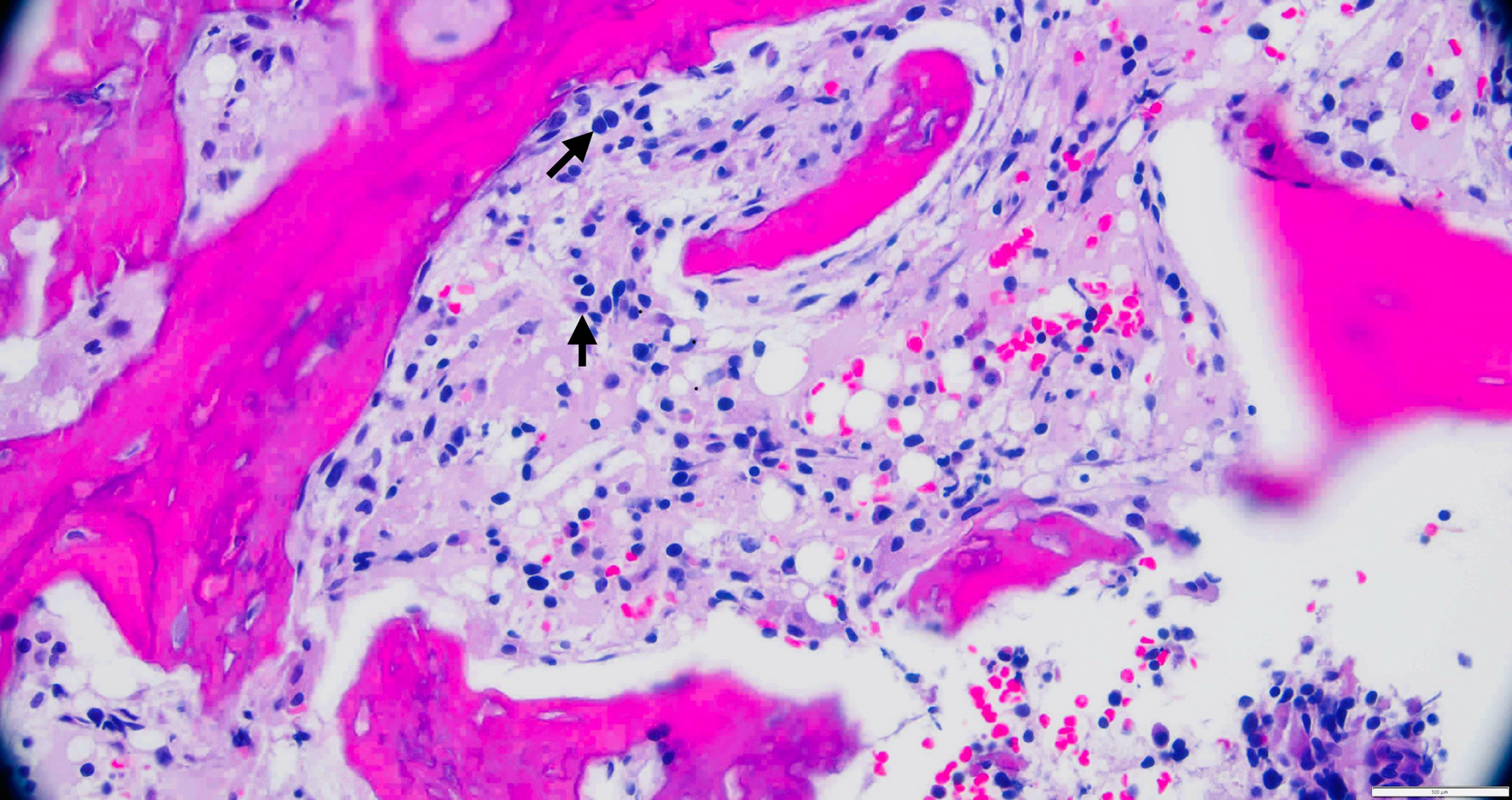Mast Cell Leukemia: Comprehensive Review of Literature With Current Insights and Updates on Management
DOI:
https://doi.org/10.14740/jh2104Keywords:
Mast cell leukemia, Systemic mastocytosis, Advanced systemic mastocytosis, KIT D816V mutation, Mast cell activation syndrome, Immunomodulatory therapy, Tyrosine kinase inhibitors, Midostaurin, Avapritinib, Hematopoietic stem cell transplantation, Overall survivalAbstract
Mast cell leukemia (MCL) is an exceedingly rare and aggressive variant of systemic mastocytosis (SM). MCL is classified as primary, occurring de novo without prior mast cell disorders or secondary, from a pre-existing SM, and acute aggressive form with C-findings that indicate organ damage or chronic indolent form without organ damage. 60-65% of cases are aleukemic with <10% circulating mast cells in the peripheral blood, and the rest of the cases are leukemic with >10% mast cells. Diagnosis is typically confirmed by bone marrow biopsy revealing greater than 20% atypical or immature mast cells (MC) in the smear. Specific MCL-targeted treatments are limited, and treatment modalities used for SM and acute myeloid leukemia (AML) have been tried in MCL with limited success and variable survival benefit. These include chemotherapeutic agents such as cladribine, cytarabine, daunorubicin, and interferon-alpha (IFN-alpha), immunomodulator therapies (thalidomide, cromolyn, and glucocorticoids), antibody drug conjugates, allogenic hematopoietic stem cell transplantation (HSCT), and targeted therapies (tyrosine kinase inhibitors). The management has significantly advanced since the implication of the KIT D816V mutation in the pathogenesis of SM and MCL. The two targeted therapies approved for MCL are midostaurin, a multikinase inhibitor, and avapritinib, a selective KIT D816V mutation-targeted tyrosine kinase inhibitor. Drugs that are under evaluation in clinical trials for MCL include bezuclastinib, ripretinib, elenestinib, brentuximab vedotin, and tagraxofusp. MCL has a poor prognosis with a median overall survival of around 1.5 years. Further advancements and research are essential to develop treatments that may enhance median OS. In this article, we conducted a systematic yet simplified review of MCL, focusing primarily on its clinical manifestations and recent updates on management. We also identified the areas that require further research and emphasized the aggressive nature and poor prognosis associated with this disease. Our aim is to enhance clinician awareness of MCL and contribute to the limited literature available on this extremely rare disease.

Published
Issue
Section
License
Copyright (c) 2025 The authors

This work is licensed under a Creative Commons Attribution-NonCommercial 4.0 International License.








